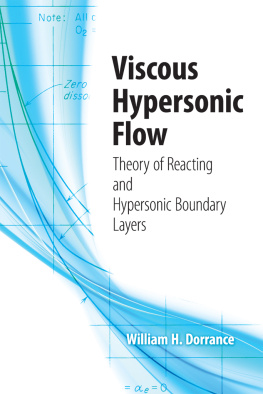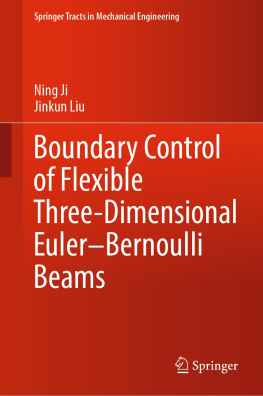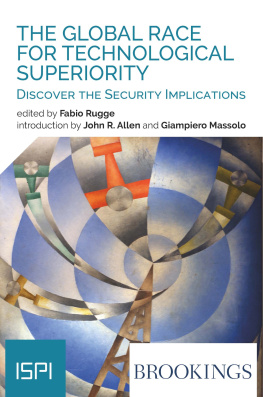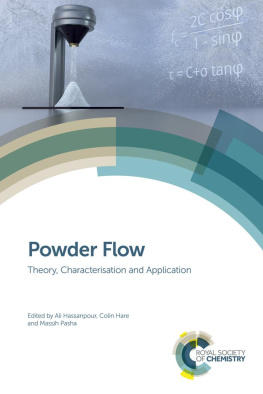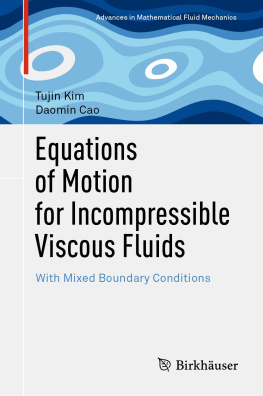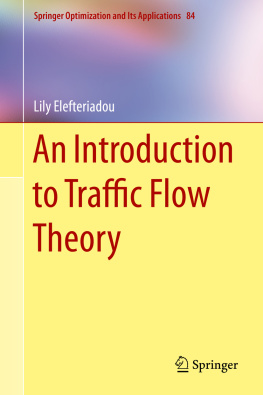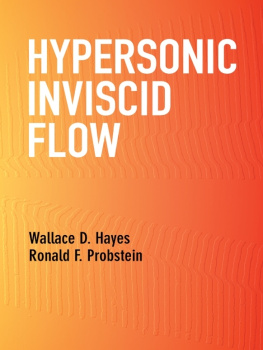Dorrance - Viscous hypersonic flow : theory of reacting and hypersonic boundary layers
Here you can read online Dorrance - Viscous hypersonic flow : theory of reacting and hypersonic boundary layers full text of the book (entire story) in english for free. Download pdf and epub, get meaning, cover and reviews about this ebook. year: 2017, publisher: Dover Publications;INscribe Digital, genre: Children. Description of the work, (preface) as well as reviews are available. Best literature library LitArk.com created for fans of good reading and offers a wide selection of genres:
Romance novel
Science fiction
Adventure
Detective
Science
History
Home and family
Prose
Art
Politics
Computer
Non-fiction
Religion
Business
Children
Humor
Choose a favorite category and find really read worthwhile books. Enjoy immersion in the world of imagination, feel the emotions of the characters or learn something new for yourself, make an fascinating discovery.
Viscous hypersonic flow : theory of reacting and hypersonic boundary layers: summary, description and annotation
We offer to read an annotation, description, summary or preface (depends on what the author of the book "Viscous hypersonic flow : theory of reacting and hypersonic boundary layers" wrote himself). If you haven't found the necessary information about the book — write in the comments, we will try to find it.
Dorrance: author's other books
Who wrote Viscous hypersonic flow : theory of reacting and hypersonic boundary layers? Find out the surname, the name of the author of the book and a list of all author's works by series.
Viscous hypersonic flow : theory of reacting and hypersonic boundary layers — read online for free the complete book (whole text) full work
Below is the text of the book, divided by pages. System saving the place of the last page read, allows you to conveniently read the book "Viscous hypersonic flow : theory of reacting and hypersonic boundary layers" online for free, without having to search again every time where you left off. Put a bookmark, and you can go to the page where you finished reading at any time.
Font size:
Interval:
Bookmark:
 Viscous
Viscous
Hypersonic
Flow Theory of Reacting and
Hypersonic Boundary Layers William H. Dorrance Dover Publications, Inc.
Mineola, New York Bibliographical Note This Dover edition, first published in 2017, is an unabridged republication of the work originally published by the McGraw-Hill Book Company, Inc., New York, in 1962. Library of Congress Cataloging-in-Publication Data Names: Dorrance, William H., 1921 Title: Viscous hypersonic flow : theory of reacting and hypersonic boundary layers / William H. Dorrance. Description: Mineola, New York : Dover Publications, Inc., [2017] | This Dover edition, first published in 2017, is an unabridged republication of the work originally published by the McGraw-Hill Book Company, Inc., New York, in 1962. | Includes bibliographical references and index.
Identifiers: LCCN 2017000037| ISBN 9780486812885 | ISBN 048681288X Subjects: LCSH: Boundary layer. | Aerodynamics, Hypersonic. | Gas dynamics. Classification: LCC TL574.B6 D64 2017 | DDC 629.132/306dc23 LC record available at https://lccn.loc.gov/2017000037 Manufactured in the United States by LSC Communciations 81288X01 2017 www.doverpublications.com
It is intended that this book serve as a suitable text for an upper-level or graduate course in modern boundary-layer theory. In addition, it is believed that the book can also serve as a suitable reference for those whose training came before the subject matter of this book became of significance. Furthermore, it is believed that the book will serve as a reference and point of departure for those engaged in research in this important area. The book not only contains a thorough description of the theories for treating reacting laminar and turbulent boundary layers but also describes the underlying theories and methods of calculating transport and thermodynamic properties for dilute gas mixtures. Certain useful concepts from thermochemistry are also described in detail. The point of view taken by the author is that of a fundamentalist; that is, an attempt is made to develop all theories presented beginning from the fundamentals.
As such, much is made of the basic physics of interactions between like and unlike particles and the roles these interactions play in determining the transport properties of reacting gas mixtures. The book has the advantage for the reader of presenting the laminar-boundary-layer theory with its many ramifications within the framework of one set of differential equations resulting from a convenient transformation of the conventional statement of the boundary-layer equations. The theory for the reacting turbulent boundary layer is also presented within the framework of one set of boundary-layer equations. Tedious conversions back and forth between transformed equations and the conventional boundary-layer equations are thereby avoided. No loss in generality results, since the effects of chemical reactions, mass transfer, surface melting, shock-wave-boundary-layer interaction, body shape, and pressure gradient are all accounted for without resorting to different transformations for differing boundary conditions. Aspects of kinetic theory, the molecular theory of gases, thermodynamics, physical chemistry, quantum theory, wave mechanics, and statistical mechanics are all briefly described as they relate to the main topic of this book.
Indeed, is devoted to the origin of the boundary-layer equations and their derivation, beginning with the molecular theory of gases. Chapter 9 is devoted to thermodynamics of gas mixtures and the methods of quantum theory, spectroscopic analysis, and statistical mechanics as they are applied to determining thermodynamic properties and equilibrium composition of gas mixtures. Chapter 10 is devoted to transport properties and the role intermolecular forces play in determining them. The book was originally intended to be a portion of a joint venture by Professor Ting Y. Li and the author embracing inviscid-flow theory as well as boundary-layer theory. The study of the flow of reacting gas mixtures burgeoned during the writing of the book, and both authors found they had much more to say than could be included in one book.
Further complications arose because of the 2000 miles separating them. Therefore, it was decided to write two books : the present one on viscous-flow problems and a later book on the inviscid flow of reacting gas mixtures in preparation by Professor Li. It is intended that the two books complement each other and together provide a comprehensive and up-to-date introduction to the theory of the flow of reacting gas mixtures. The author wishes to acknowledge the assistance of several colleagues in preparing this book. Professor Ting Y. Mr. Mr.
Robert Lowen was particularly helpful in reading and commenting on Chap. 9. Mr. Merwin Sibulkin undertook the burden of reading the entire first draft and constructively criticizing it. By no means the least contribution was made by Mrs. WILLIAM H. WILLIAM H.
DORRANCE AEROSPACE CORPORATION
In particular, this book is concerned with viscous-gas-flow problems involving reacting gas mixtures. Starting from the statement of the boundary-layer equations for a mixture of gases, the theory is developed for both the laminar and turbulent boundary layers. Solutions for heat transfer to and from two- and three-dimensional shapes are developed taking into account the effects of dissociation of the boundary-layer gas, the effects of chemical reactions other than dissociation, the effects of mass transfer, the effects of a melting surface, and interactions between the boundary-layer gases and the surfaces over which they flow. An effort is made to provide fundamental ideas for the research scientist who wishes to push beyond the present state of this science while also providing some results which can be applied by those engaged in the design of hypersonic vehicles. The book is intended to cover hypersonic and reacting boundary-layer theory only. Those interested in problems of hypersonic inviscid flow and experimental techniques will not find those subjects covered in this book.
Rather, it is intended that the various problems associated with a hot, reacting, compressible boundary layer will be thoroughly treated in the present book.
Next pageFont size:
Interval:
Bookmark:
Similar books «Viscous hypersonic flow : theory of reacting and hypersonic boundary layers»
Look at similar books to Viscous hypersonic flow : theory of reacting and hypersonic boundary layers. We have selected literature similar in name and meaning in the hope of providing readers with more options to find new, interesting, not yet read works.
Discussion, reviews of the book Viscous hypersonic flow : theory of reacting and hypersonic boundary layers and just readers' own opinions. Leave your comments, write what you think about the work, its meaning or the main characters. Specify what exactly you liked and what you didn't like, and why you think so.

